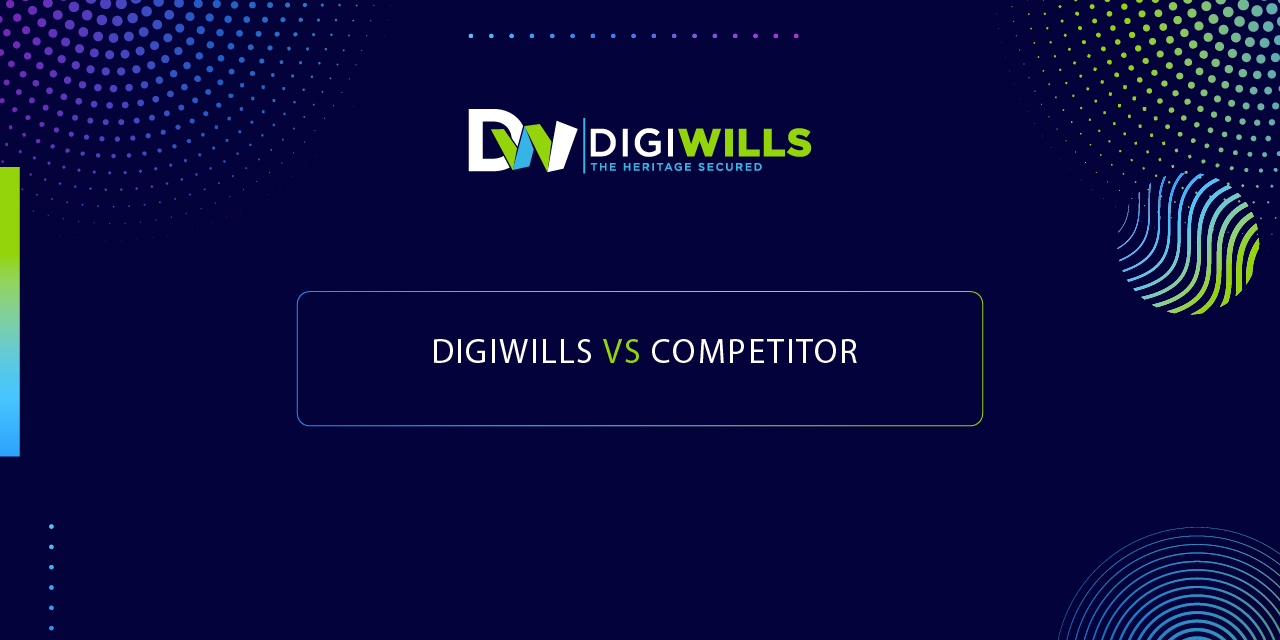Here’s how they compare and how Digiwills can outperform and overcome their limitations.
| Feature | Digiwills | Competitor | How Digiwills Outperform |
| Decentralization | Fully decentralized, no third-party intervention | Uses VeChain blockchain, relies on partnerships | Focus on complete autonomy without external dependencies |
| Ease of Use | Simple DGW-based system for creating Wills | Complex multi-signature security setup | More user-friendly onboarding & automation |
| Smart Contracts | Blockchain-based wills with token-based execution | Uses smart contracts but requires multiple signatures | More flexibility in conditions & triggers |
| Security | Private-key encrypted, accessible only by owner and successors | Multi-layer security but with external validation | Greater user control over encryption |
| Cost Structure | Pay-as-you-go model with low fees (DGW-based) | Requires staking of Their tokens, costs vary | More transparent & predictable pricing |
| Supported Assets | Any digital data, accounts, or wallets | Mainly crypto assets, some real-world integrations | More diverse asset support beyond crypto |
| Blockchain Independence | Can expand to multiple chains | Limited to VeChain | Multi-chain expansion (Ethereum, BSC, Solana) |
How Digiwills Overcome Competitor’s Limitations
- Simplicity & Accessibility
- Competitor requires complex multi-signature setups, making onboarding difficult for non-technical users.
- Digiwills can streamline the process with an intuitive UI, fewer steps, and automated execution.
- Greater Flexibility in Inheritance Conditions
- Competitor requires pre-approved validators, whereas Digiwills can introduce customizable smart contract conditions (e.g., inactivity-based triggers, multiple conditions).
- Broader Use Cases Beyond Crypto
- Competitor primarily focuses on crypto inheritance.
- Digiwills can expand to include non-crypto assets such as passwords, personal documents, and other digital assets.
- Transparent & Low-Cost Model
- Competitor requires users to stake their token, which creates barriers.
- Digiwills operates on a pay-per-use model, making it more accessible.
- Multi-Blockchain Compatibility
- Digiwills can evolve beyond a single blockchain (VeChain in Competitor’s case) to Ethereum, BSC, and other EVM-compatible networks.
Conclusion
Digiwills can outperform Competitor by prioritizing ease of use, flexibility, broader asset support, transparent pricing, and blockchain interoperability. By addressing these areas, Digiwills can position itself as the most user-friendly and scalable digital inheritance solution.


